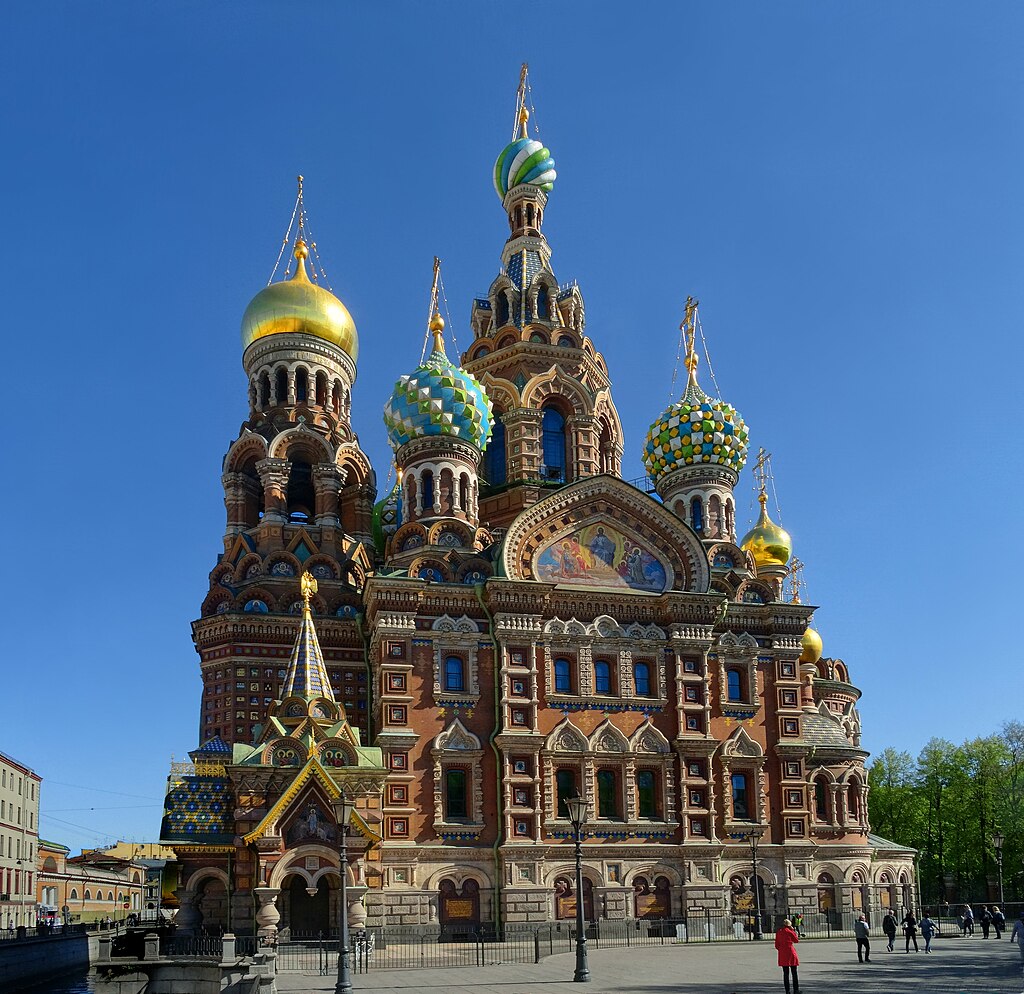Landschlacht, Switzerland, 23 September 2017
It has been a hard year for my heart in my dual roles of teacher and barista.
In the former role, I have been disappointed that my preferred profession of choice, teaching, has sadly not been as busy lately as I might have hoped.
In the latter, I have been saddened by the grim reality that the gastronomy industry has always had lots of personnel turnover.

Above: The Starbucks logo
In plainer language, I keep having to say good bye to colleagues whom I love.
I have had to say good bye to Anna, a lovely multilingual young lady, and Ricarda, so sensitive and shy, for reasons of health.
Some have left for love, like Katja, Vanessa and Alanna bringing new life into this old world.
Some have left for better work opportunities, like Bryan, Kasia, Ricardo, Natalie, Valentina, Anne Catherine and Coco.
Some have returned to their homelands, like the aforementioned Bryan of Newcastle, Julia of Poland and Natan of Italy.
And though I have warmly welcomed into the fold new Partners, like Sukako of Japan and Michaela of Sweden, and I am truly happy that partners like Volkan, Roger, Jackie, Pedro, Eden, Dino, David, Alicia, Nesha, Christa and Rosio still remain, my poor old heart still has trouble letting go of those partners who leave us behind.
(And apologies to those whose names have been forgotten at this time of writing.)
Tonight we say good bye to yet another partner whose departure affects me in ways complicated to express, for Lyudmila of St. Petersburg, Russia, a place that is prominent in my latest blog posts, will move next week to Canada, my homeland, to live in Annapolis Royal, Canada´s oldest town and where my walking adventures across Canada ended.
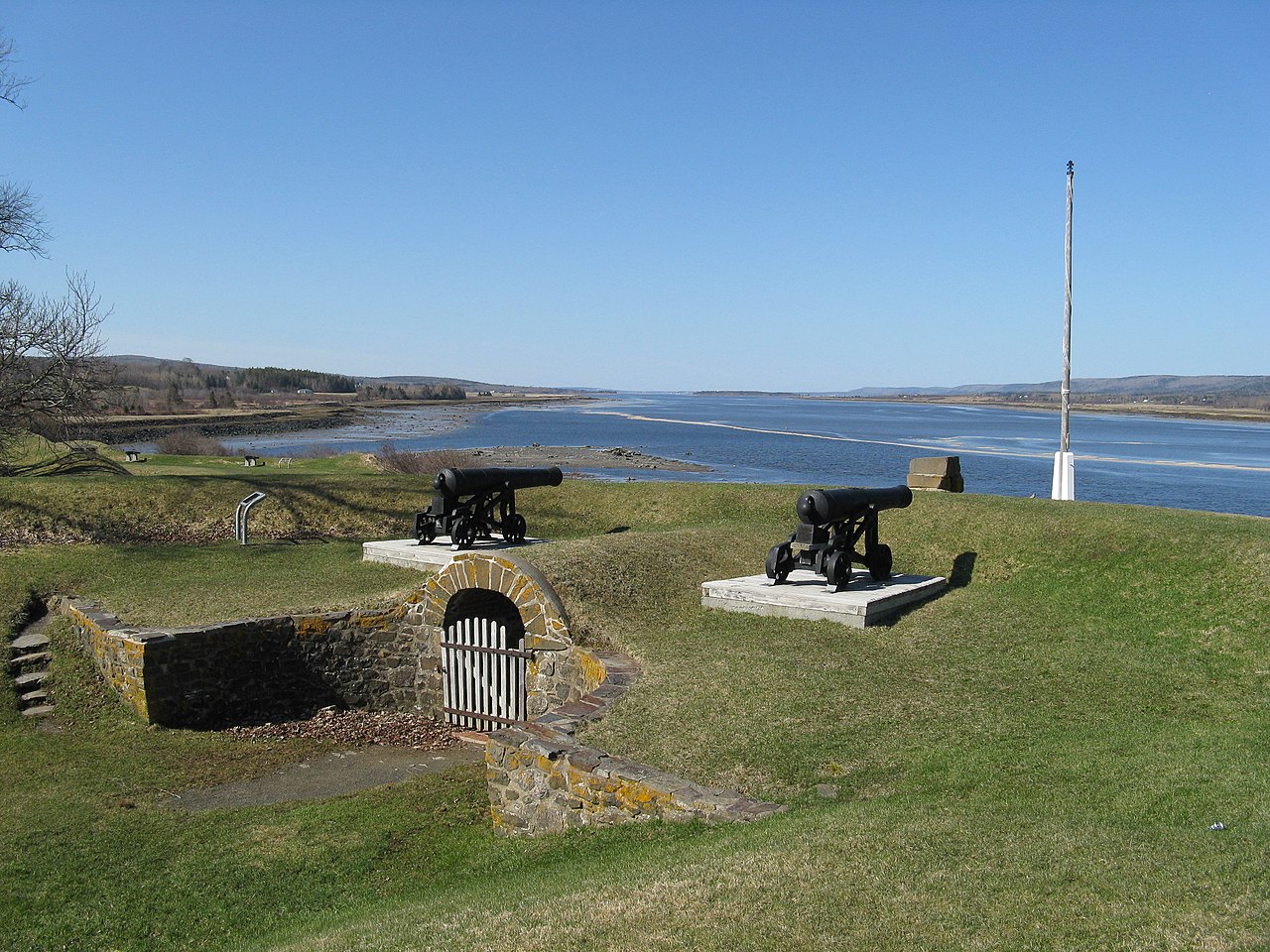
Above: Seaward view from Annapolis Royal
(My tale of Annapolis Royal and the end of my walking adventures in Canada will be told, God willing, at another time.)
Lyudmila is a very open and caring woman.

Her husband is clearly a very fortunate man, for Lyudmila´s outer beauty is only diminished by her amazing inner beauty of imagination, passion and compassion.
Her spirit is as bright as summer midnight in Siberia, her tenderness towards others makes her as huggable as a soft teddy bear and her red hair, as crimson as the old Soviet flag, blazes and brands a memory in every man´s mind.
Sadly I did not work that often with Lyudmila as she was mostly at Starbuck´s Arena store and I remained mostly at the other two St. Gallen locations, the Bahnhof and Marktgasse.
Yet despite this, we were always delighted to see one another and the warmth between us was real and open.
I will miss her.
How ironic it is that her new home will be in my homeland.
How ironic that she is beginning a new life where I left an old one behind.
How far she has travelled from her old home in St. Petersburg.
I have an odd hobby.
When I meet a partner whose homeland I have never visited I buy a guidebook to their countries and plan a visit there.
My home library, for example, contains guidebooks of places never visited, yet because of the warm feeling that the partners from these countries give me I know that one day I will visit Valentina and Nesha´s Serbia, Vanessa´s Macedonia, Julia and Kashia´s Poland, Pedro and Natalie´s Brazil, Alicia´s Nepal, Eden´s Ethiopia and now Lyudmila´s Russia.

Landschlacht, 24 September 2017
There were a combination of factors that diminished the bittersweet good bye party I had unconsciously wished for last night:
A head cold (Nothing worse than a man´s cold, ladies!),
Fatigue (I have been doing A LOT of extra hours at Starbucks because of a shortage of personnel at present, including a double shift earlier today.),
Location (We all met inside the basement restaurant Tres Amigos, which was hot, crowded and noisy.),

Numbers (Too many people had been invited, making conversations, at a level more than superficial, impossible.) and…
Age (I truly felt like an old man last night since so many of those invited were either significantly younger than me or were much better at faking a youthful spirit than I was.).
I have over the past few months stopped colouring my hair and have let nature show my age with silver hair and balding pate, and last night my age showed.
I felt shy and awkward and three pina coladas didn´t help.

But the party wasn´t about me nor should it have been.
It was a farewell party for a beloved and lovely colleague.
And it was nice to see colleagues I don´t see that often.
And seeing the ladies all fancied up, wearing make-up and colourful clothing, made my eyes delighted with the images they presented.
And I lost in the comparison amongst the men, for I had unwisely changed into a shirt that exposed a middle-aged belly and the zipper on my pants chose yesterday of all days to break.
Plus it must be said that youthful bearded men, full of vim and vigour like Volkan and Dino, always have a distinct advantage over me in the attractiveness factor.
Had I been trying to attract one of the ladies last night, I was a drooping daisy that could not compete with all the bright sunflowers around me!
But enough about me and my self pity.
Lyudmila looked lovely and excited about the new life she will begin next week.
Since I have known of her impending departure, I have often thought of how far a road she has travelled from St. Petersburg to Annapolis Royal via St. Gallen.
I wish I had had the opportunity to have spoken to her about her life and the journey that her life had taken her, but, despite our mutual liking of one another, ours was never a relationship that was as close as one she shared with the girl friends she worked with at Starbucks.
I have lived in both Canada and Switzerland, but I have never had the opportunity to visit Russia.

And my only exposure to Russians I have had has been with Lyudmila in St. Gallen and the Russian women I met during my days in South Korea.
My knowledge of Russia has been limited to what I have read and the biased media coverage that the Western media provides us.
I am surprised to discover how few books I own in regards to Russia and the media leaves me with the notion, without direct experience or proof, that all Russian leaders in my lifetime have been men of questionable morality, that Russia is a bleak and cold desolate land, and that Russians are humourless bullies obsessed with the notion of the Russian soul.
It is the 100th anniversary of the Russian Revolution and its connection to Switzerland has compelled me into trying to discover the truth, as best as I can, about Russia past and present.
What must it have been like to grow up in St. Petersburg?

Above: Pictures of St. Petersburg: St. Isaac´s Cathedral, Kazan Cathedral, Peter and Paul Fortress, Senate Square horseman, Trinity Cathedral, Peterhof Palace, the Winter Palace.
Originally founded by Peter the Great in 1703 as “Russia´s Window to Europe”, St. Petersburg was constructed on swampland by thousands of serfs, many of whom perished, their bones laying the city´s foundations.
St. Petersburg became the capital of Russia in 1712 and remained so until 1918.
The city´s name was changed to the more Russian-sounding Petrograd in 1914, then to Leningrad in 1924., after the death of Vladimir Lenin.
Above: Vladimir Ilyich Ulyanov aka Lenin (1870 – 1924)
Its original name was restored following the collapse of the United Soviet Socialist Republics (USSR) in 1991.

Above: Flag of the Soviet Union / USSR (1922 – 1991)
St. Petersburg is a name suggesting great literature.
Alexander Pushkin was the first writer to explore the rich potential of the Russian language as spoken by the common people.
Above: Russian poet/playwright/novelist Alexander Pushkin (1799-1837)
His masterpiece is Evgeniy Onegin, a novel set in verse form.
Nikolai Gogol, although a Ukranian by birth, a huge amount of his striking original work is set in St. Petersburg, including The Nose and The Overcoat.

Above: Russian dramatist Nikolai Gogol (1809-1852)
Fyodor Dostoevsky, the author of some of the world´s most profound literature, such as Crime and Punishment, spent much of his life in St. Petersburg, where in 1849 he was subjected to a mock execution for “revolutionary activities” – a trauma which affected him the rest of his days.
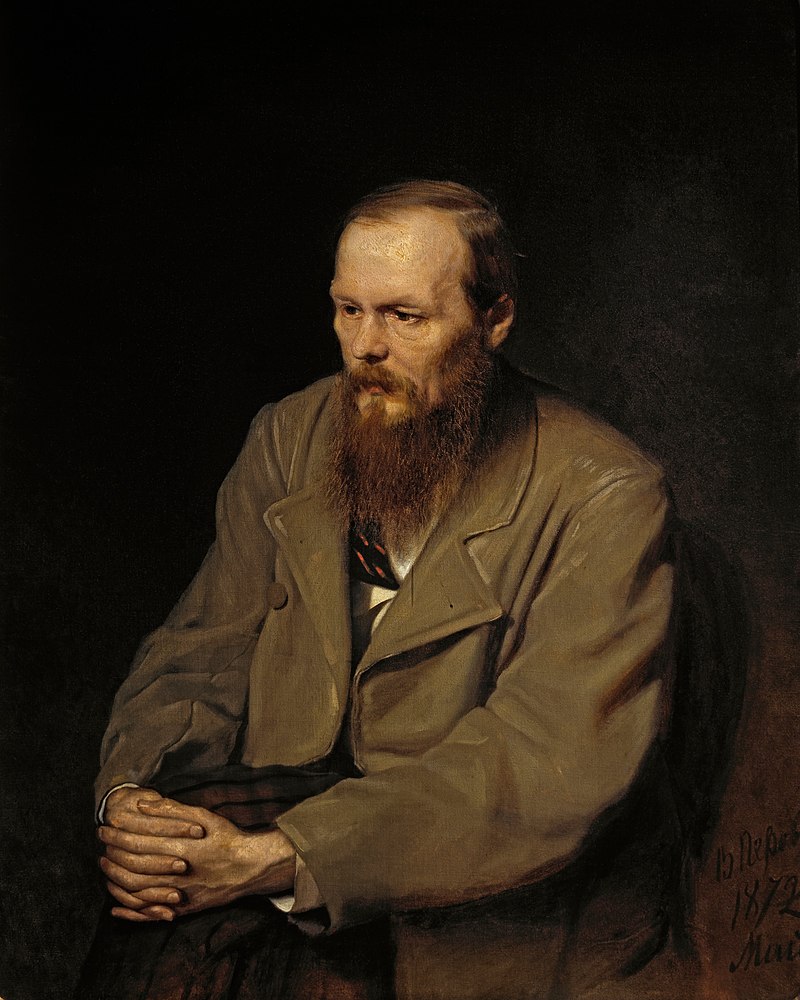
Above: Russian writer Fyodor Dostoevsky (1821-1881)
Osip Mandelstam, the author of symbolic taut poetry, in 1933, composed a poem about Stalin in which he wrote that the dictator´s “fingers were as fat as grubs” and that he possessed “cockroach whiskers”.

Above: Russian Poet Osip Mandelstam (1891-1938)
This poem ultimately led to Mandelstam´s death and became known as the “16-line death sentence.”
Daniil Kharms wrote some of the strangest and most original Russian literature, which was suppressed by Stalin due to its downright oddness rather than any overt political message.

Above: Russian writer Daniil Kharms (1905-1942)
Kharms starved to death in the WW2 siege of the city.
Andrey Bely, although Moscow-born, reached the pinnacle of his career with his symbolist masterpiece Petersburg, a choatic, prophetic novel that has been favourably compared to the works of Irish writer James Joyce.

Above: Boris Nikolaevich Bugaev, aka Andrey Bely (1880-1934)
Vladimir Nabokov was born in St. Petersburg and grew up trilingual speaking Russian, English and French.
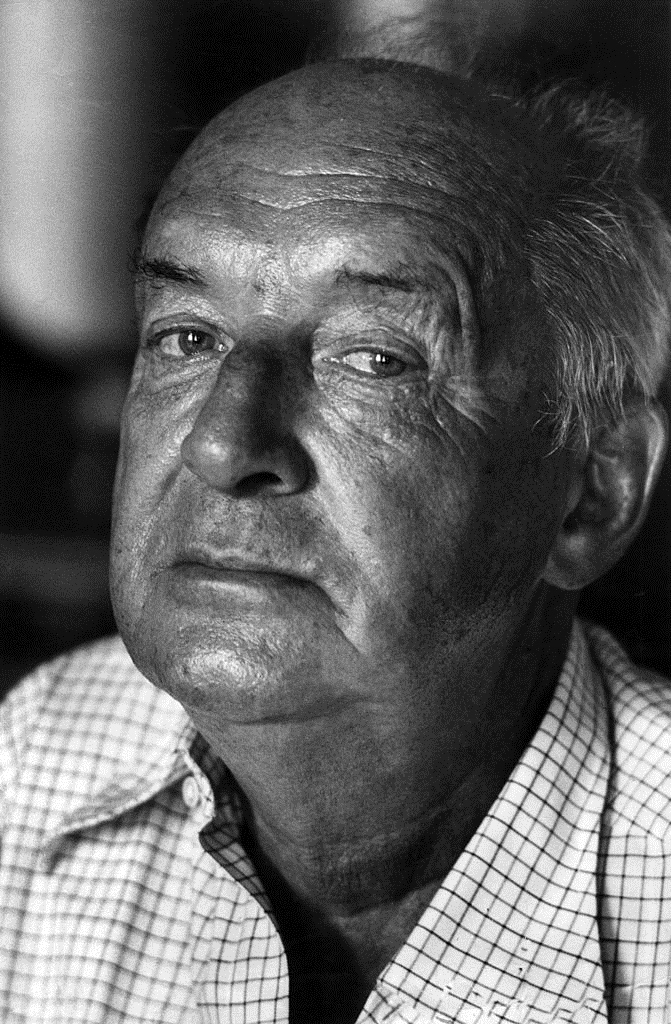
Above: Russian-American novelist Vladimir Nabokov (1899-1977)
His family moved to Europe in 1918 and Nabokov wrote many of his novels in English, including his best known work, Lolita.
Joseph Brodsky won the Nobel Prize for Literature in 1987, after leaving the Soviet Union in 1972 after his works were attacked by the authorities.

Above. Russian writer Joseph Brodsky (1940-1996)
The poetess Anna Akhmatova, branded a “half-harlot, half-nun” by Soviet authorities, wrote Requiem, her tragic masterpiece about the terrifying Stalin years, which was banned in the USSR until 1989.
Above: Anna Andreyevna Govenko, aka Anna Akhmatova (1889-1966)
Alexander Blok developed complex poetic symbols, especially in his most controversial work The Twelve, which likens Bolshevik soldiers to Christ´s Apostles.
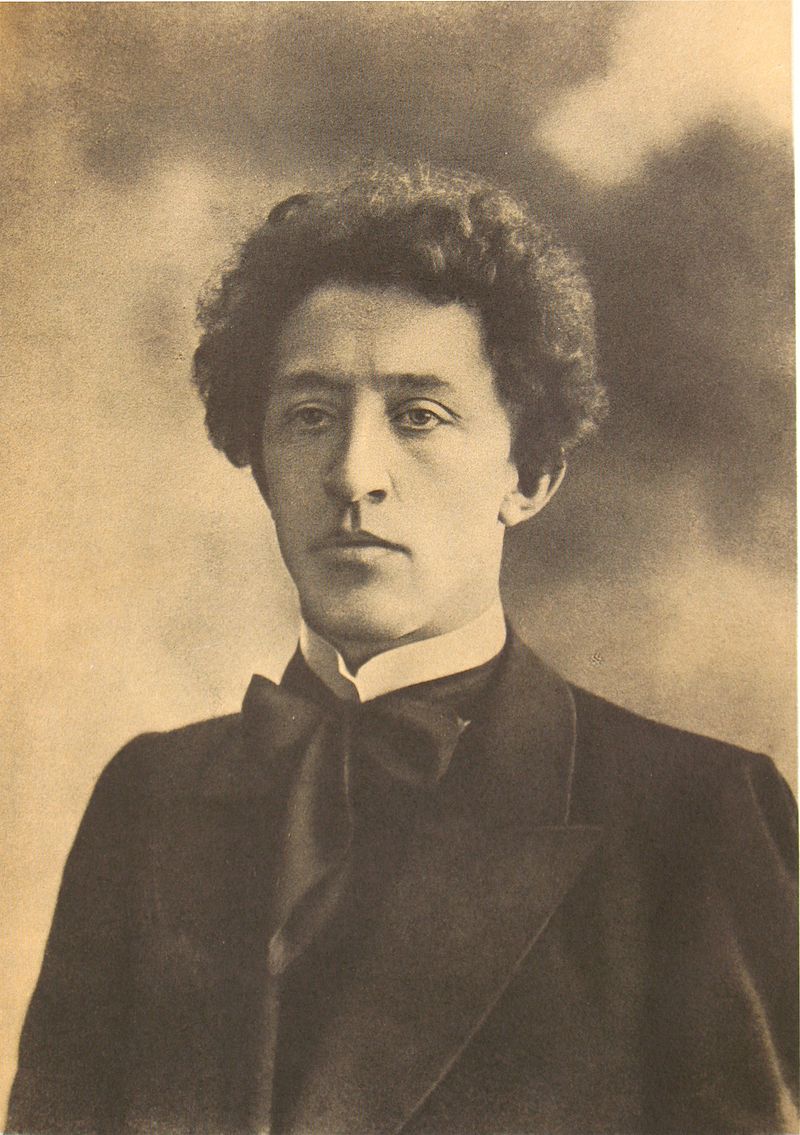
Above: Russian poet Alexander Blok (1880-1921)
Many films have been set in St. Petersburg, with the most familiar to the West probably being Golden Eye, wherein James Bond (007)(played by actor Pierce Brosnan) carries out a daring raid involving the Russian Mafia.

Above: Poster for 1995 film Golden Eye
The 1990s in which Golden Eye was filmed and set, a criminal class had sprung up, willing and able to do anything to build up fortunes, earning St. Petersburg the reputation as “the Crime Capital of Russia”.
Clearly St. Petersburg is quite inspirational.
Landschlacht, 25 September 2017
To get from the platform where I disembark in St. Gallen to the Starbucks where I usually work in the city centre on Marktgasse, I normally stop on Platform 1 and chat with the Starbucks Bahnhof personnel who happen to be working at the time.
Yesterday I had the late shift (1500 – closing).
On duty at the Bahnhof were Lyudmila and Sukako.
How typical of Starbucks to work a Partner right up to her departure day!
(Lyudmila flies to Canada on Thursday.)

How interesting to see a Russian and a Japanese working harmoniously together when only a little over a century ago their countries were mortal enemies.

Above: Scenes from the Russo-Japanese War (1904 – 1905)
I call Sukako privately “Suzi Q” (reminiscient of the old Creedance Clearwater Revival (CCR) song) and publicly “Tampopo”(“Butterfly”)(from the only Japanese movie I never forgot).
I showed Lyudmila my old second hand copy of a St. Petersburg guide book I had brought with me and she nostalgically pointed out where in downtown St. Petersburg she once lived.
She smiled and said she tries to visit St. Petersburg at least twice a year if she can and told me she still has many friends and family members there.
Knowing someone like Lyudmila makes me wonder just how wrong the images I have of Russia and Russians might be.
Perhaps I make the same mistake about Russia as many people do about America: judging the country by the leadership.
An ancient habit carried over from the days when kings and queens were their countries as theirs was the only authority, yet this is a habit that just won´t fade away quietly.
We shouldn´t judge Russia by the only Russian most people have heard of: Vladimir Putin.
Nor should we judge America by the American most people wish they had never heard of: Donald Trump.
I am reminded of the old song “Russians” by Sting where the listener is reminded that “the Russians love their children too”.
Lyudmila warmly encouraged me to visit St. Petersburg one day and my reading about it does make the city seem attractive.
From the pre-revolutionary grandeur of the Hermitage (the former residence of the tsars and now home to art collected from around the world) and the Mariinskiy Theatre (Russia is famous for its ballet and opera.) to the unavoidable reminders of the Soviet period, St. Petersburg promises to be a city where eras and architectural styles collide.

Above: The Hermitage Museum, formerly the Winter Palace

Above: The Mariinskiy Theatre
Blessed with some of the world´s most magnificent skylines and known throughout Russia as “the Venice of the North”, Russia´s second city is a place of wonder and enigma, of white summer nights and long. freezing winters.
And it seems one could easily spend a week, or a lifetime, discovering the city.
Nevskiy Prospekt, the cultural heart of the city, is home to many of St. Petersburg´s top sights, including the Cathedral of Our Lady of Kazan.
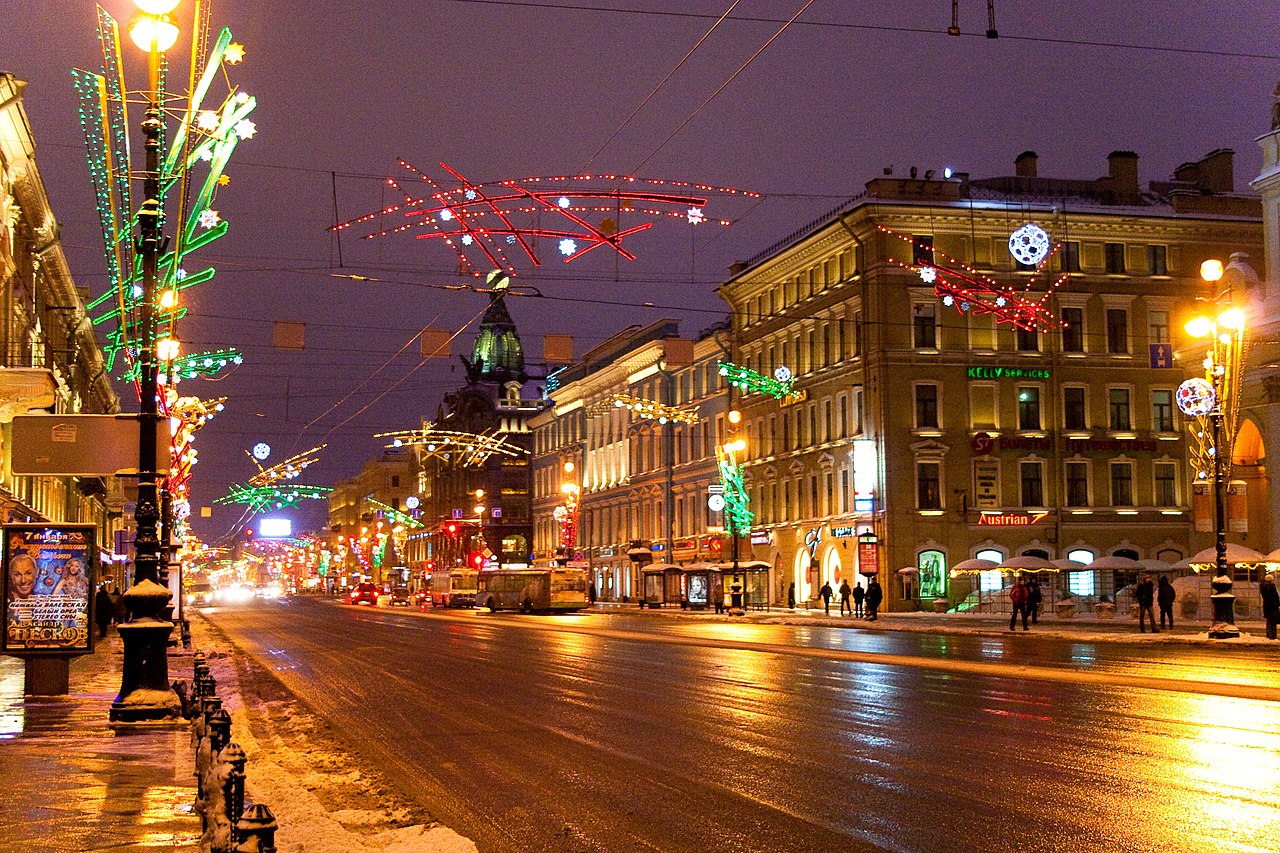
Above: Winter on Nevskiy Prospekt
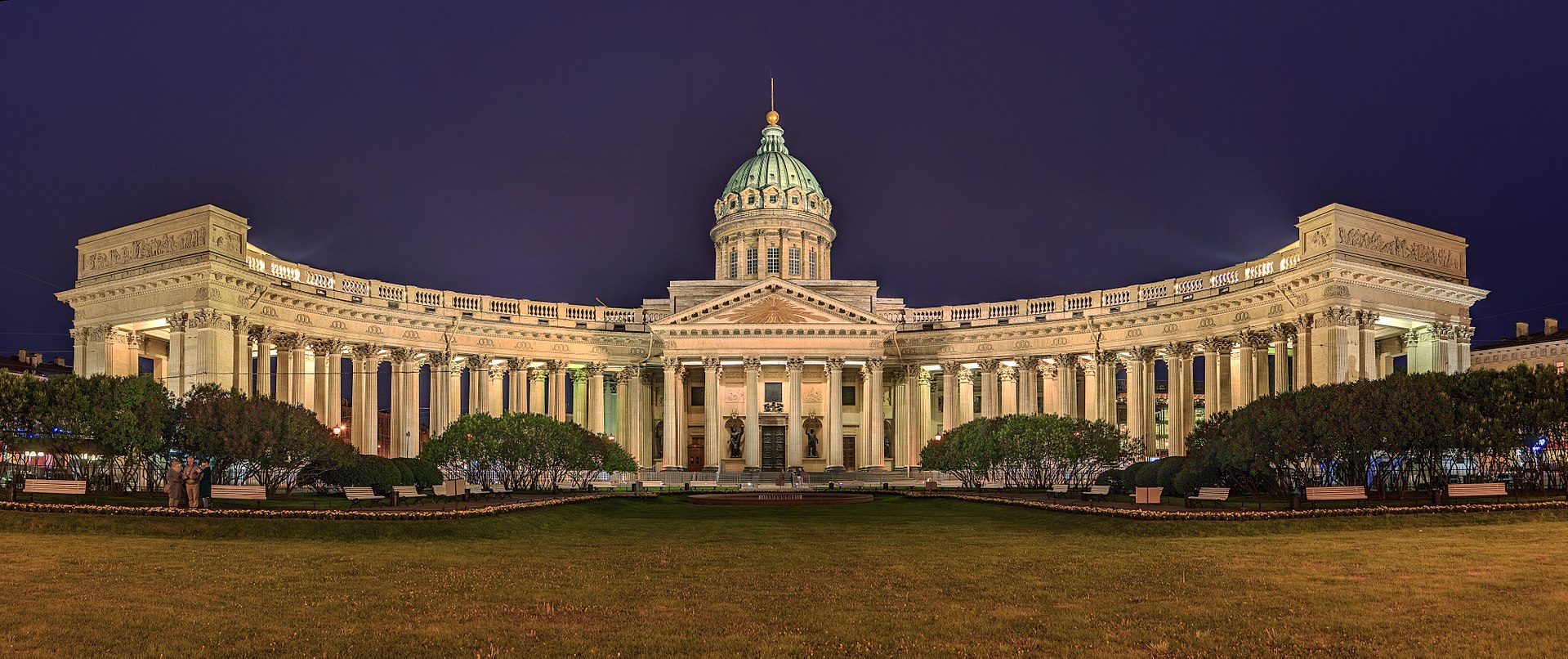
Above: Kazan Cathedral
A stroll along Nevskiy Prospekt is a journey through time, from tsarist-era splendours to the cafés and chic boutiques of modern day St. Petersburg.
Immortalised in literature, this 4.5 km/3-mile stretch has been the hub of the city´s social life since the 18th century.
If in Europe all roads lead to Rome, then in St. Petersburg all roads converge on Nevskiy Prospekt.
Just off Nevskiy Prospekt, the Church on Spilled Blood, built as a memorial to Tsar Alexander II in 1881 on the site of his execution, is a kaleidoscope of wondrous colourful mosaics and icons.
Above: The Church of Our Saviour on Spilled Ground
The Russian Museum is an exclusively Russian affair, collecting only works made by Russians.
Above: The Russian Museum in the former Mikhailovsky Palace
The history of St. Petersburg dates from the founding of the Peter and Paul Fortress in 1703, originally intended to defend the city against Swedish invaders, it contains a magnificent cathedral, dark and damp cells, a popular beach(!) and fine examples of Baroque architecture and much like the city itself, much like Russia herself, the Fortress is a contradictory wonder that simultaneously exhilarates the spirit and chills the bones.

Above: The Peter and Paul Fortress on Zayachy Island on the Neva River
And these abovementioned half-dozen sites are just the tiniest sample of all there is to see and do in St. Petersburg.
(I have never been to Russia´s second city, but I have been to its Floridan namesake, which is another adventure that I will share with you, my gentle readers, at a later time.)
Much of what is Russian history happened in St. Petersburg.
To understand the Russia of today, I believe one needs to understand how Russia got to where she is now.
I have previously spoken of the founding of St. Petersburg, “Bloody Sunday” 9 January 1905, the dawn of the February Revolution of 1917, the 900-day WW2 siege of the city when author Daniil Kharms perished from starvation, and the criminal 1990s.
But St. Petersburg is more than these events…
It has seen its share of powerful political figures….
Peter the Great, the driving force behind the city, ruled Russia from 1682 to 1725.

Above: Russian Tsar Peter the Great (1672 – 1725)
Nicholas II, the last Tsar of Russia, was killed by the Bolsheviks following the October Revolution of 1917.
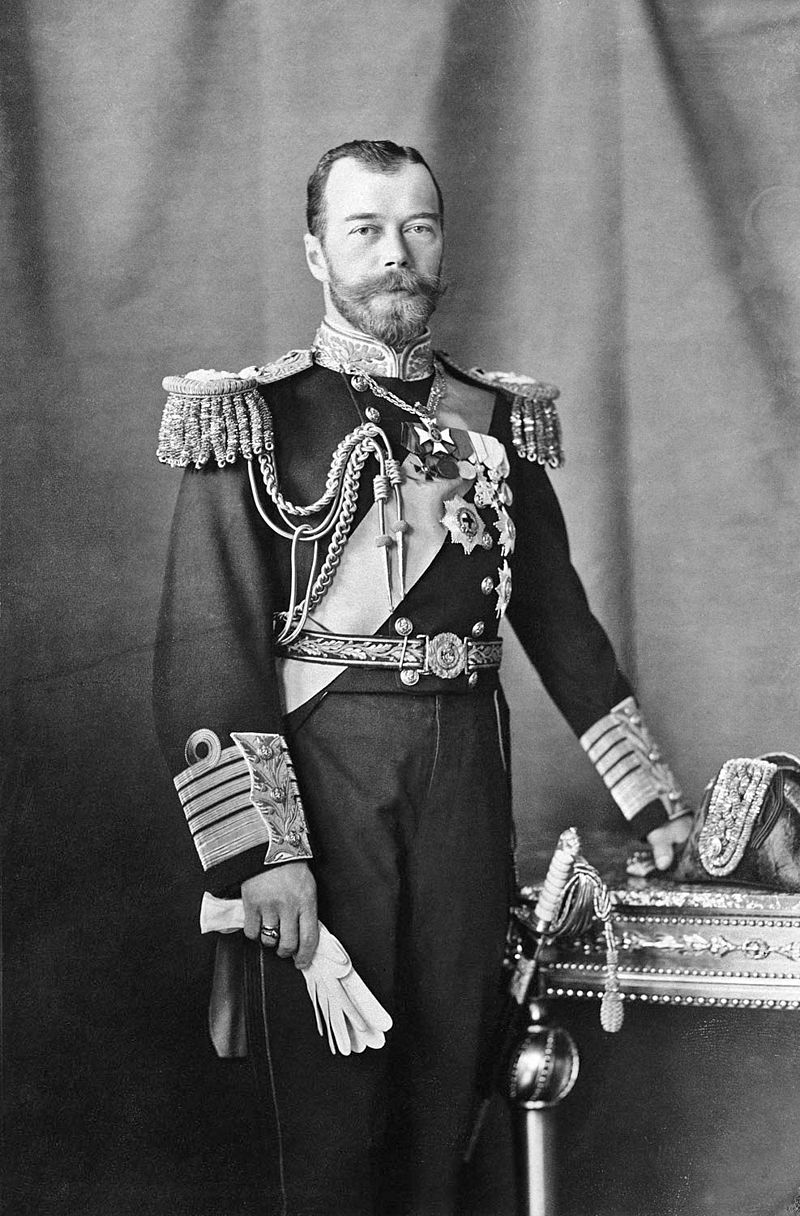
Above: Russian Tsar Nicholas II (1868 – 1918)
Gregori Rasputin was a peasant mystic whose scandalous lifestyle helped discredit Tsar Nicholas II´s rule.

Above: Gregori Rasputin (1869 – 1918)
St. Petersburg was home to Mikhail Bakunin, a revolutionary involved in insurrections all over Europe and is generally considered to be “the father of modern anarchism”.

Above: Russian anarchist Mikhail Bakunin (1814 – 1876)
Lenin returned to Russia and St. Petersburg to become the leader of the October/Bolshevik Revolution and the Soviet Union´s first head.
Soviet revolutionary Sergey Kirov´s assassination would mark the beginning of a series of bloody purges in the 1930s.

Above: Bolshevik politician Sergey Kirov (1886 – 1934)
Anatoly Sobchak would become St. Petersburg´s first democratically elected Mayor in 1991.

Above: Anatoly Sobchak (1937 – 2000), St. Petersburg Mayor (1991-1996)
Galina Starovoitova (1946 – 1998), a politician known for her democratic principles and assassinated in 1998, would have a funeral attended by thousands of Russian mourners.

Above: Burial site of Galina Starovoitova, Nikolskoye Cemetery, Alexander Nevsky Monastery, St. Petersburg
Valentina Matvienko, the Governor of St. Petersburg, remains a rare female figure in male-dominated Russian politics.
St. Petersburg native and former KGB head Vladimir Putin, who rose to power as Acting President on New Year´s Eve 1999, remains Russia´s dominant leader who has overseen the country´s economic growth while simultaneously cracking down on press freedom and repressing dissent to his rule wherever it may arise.

Above: Vladimir Putin (born 1952), President of Russia since 2012
But once again we need to remind ourselves that the leadership of a place does not mean that all of its people resemble those leaders.
I would like to think that Lyudmila is perhaps a truer representative, a better ambassador, to the wonder of St. Petersburg and the potential of Russia than Putin or his ilk could ever be.
Sadly, like many things in life, it has taken her departure for me to truly appreciate who Lyudmila is and what she represents to me.
Though it was the commemoration of the Russian Revolution in Swiss museums this year that has evoked curiosity within me about Russia and its relationship with Switzerland, my present country of residence, I am now inspired by Lyudmila to research, and hopefully one day visit, Russia.

Above: Flag of Switzerland
And maybe, one day, Lyudmila and her husband along with my wife and I will share coffee together on Nevskiy Prospekt, with Lyudmila having an understanding of my homeland and I with a greater understanding of hers.
I still have hope.

Sources: Wikipedia / Marc Bennetts, Top Ten St. Petersburg, Dorling & Kindersley Eyewitness Travel, 2008




